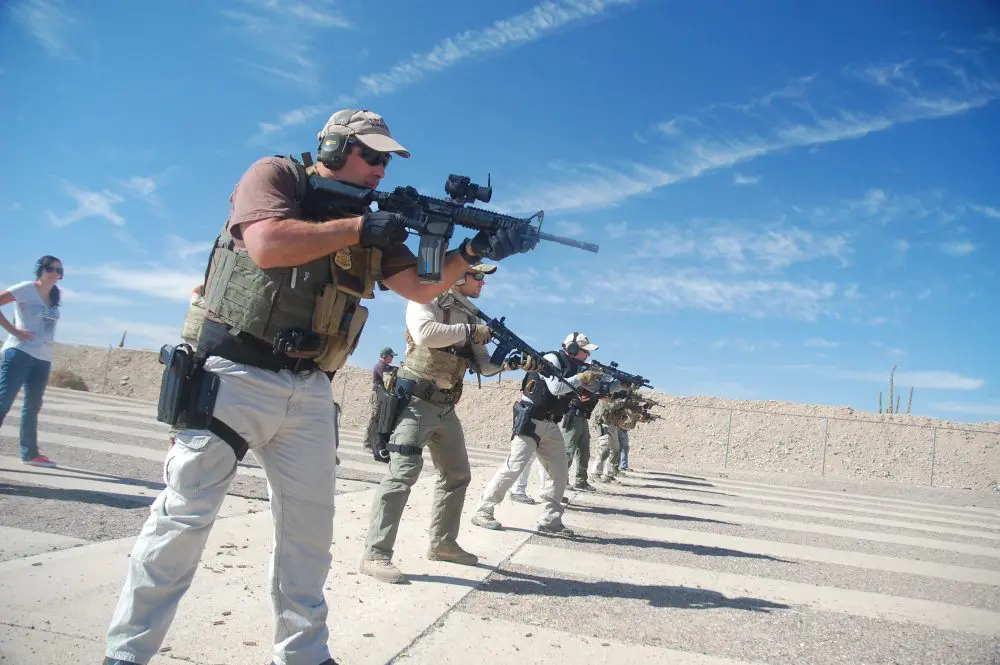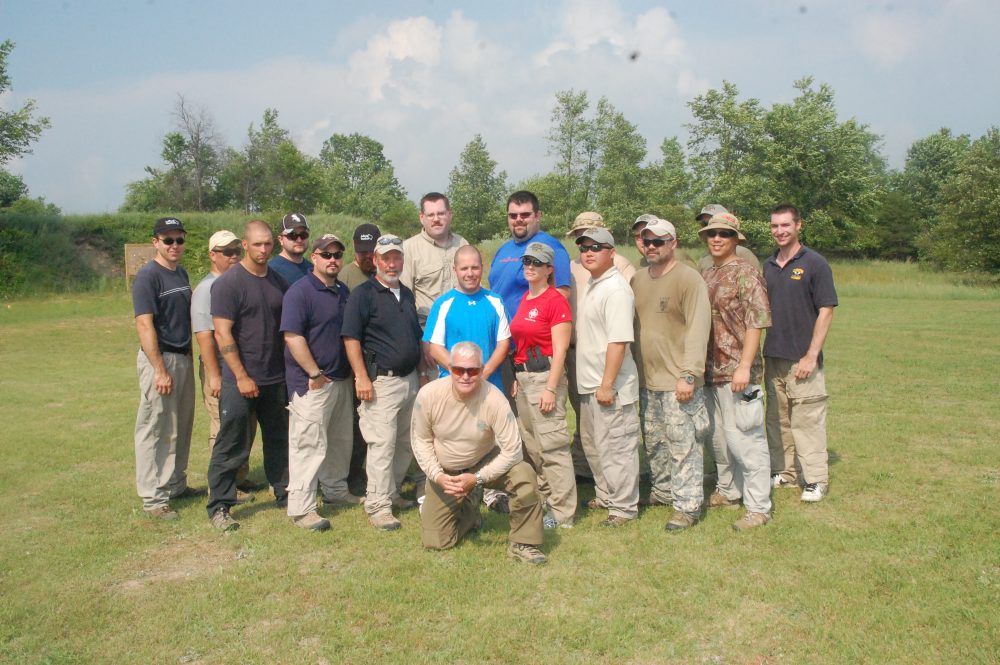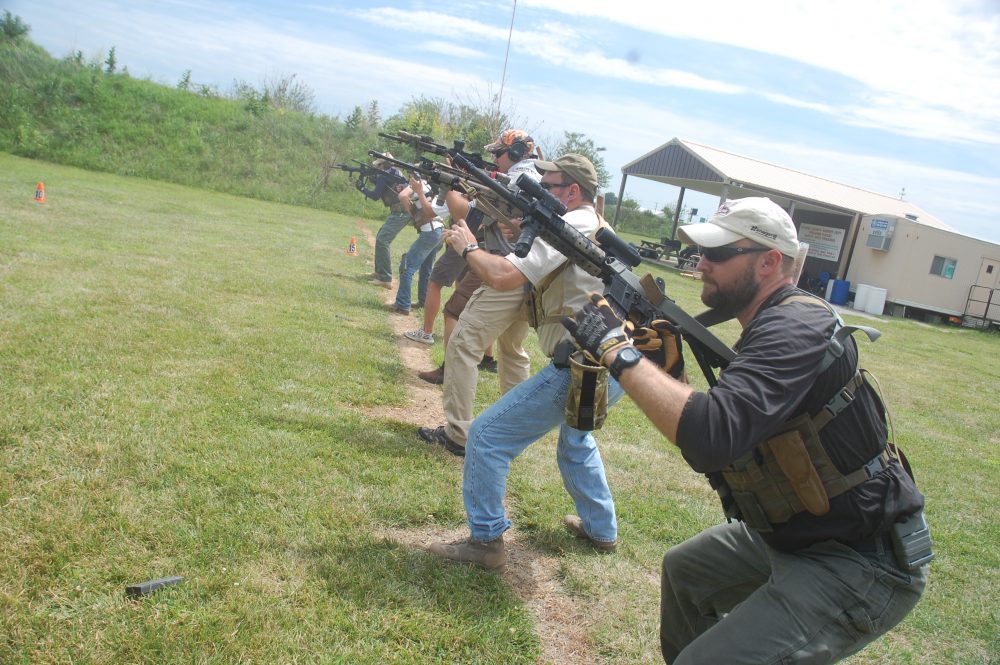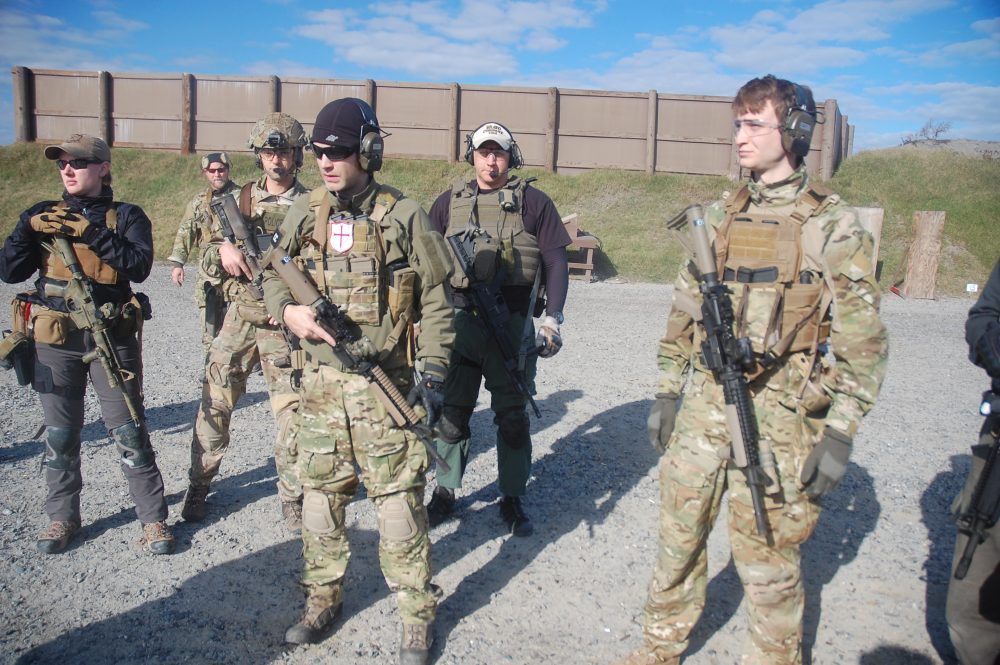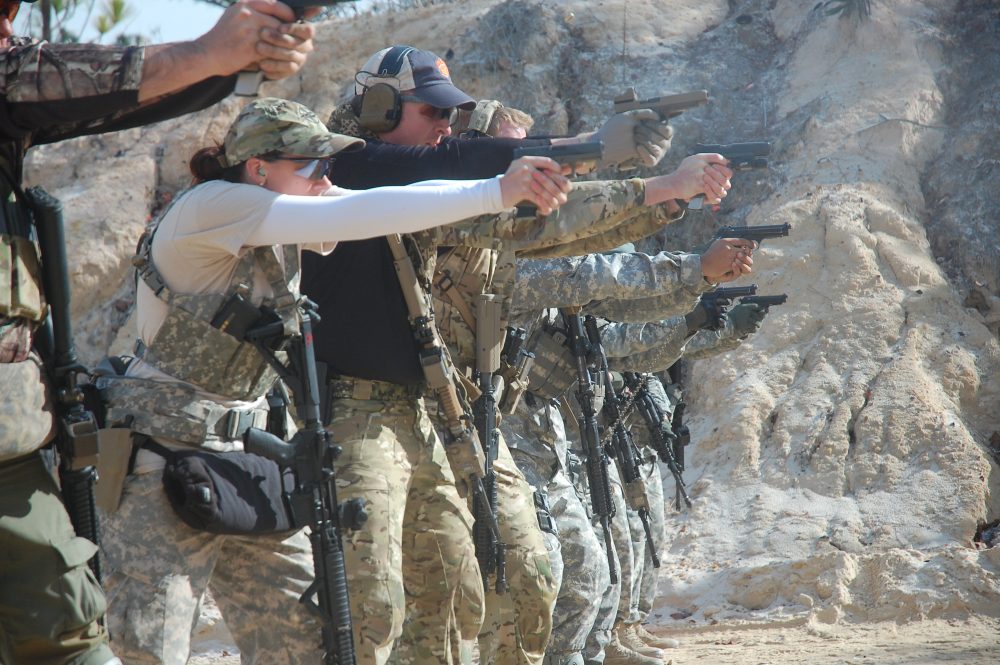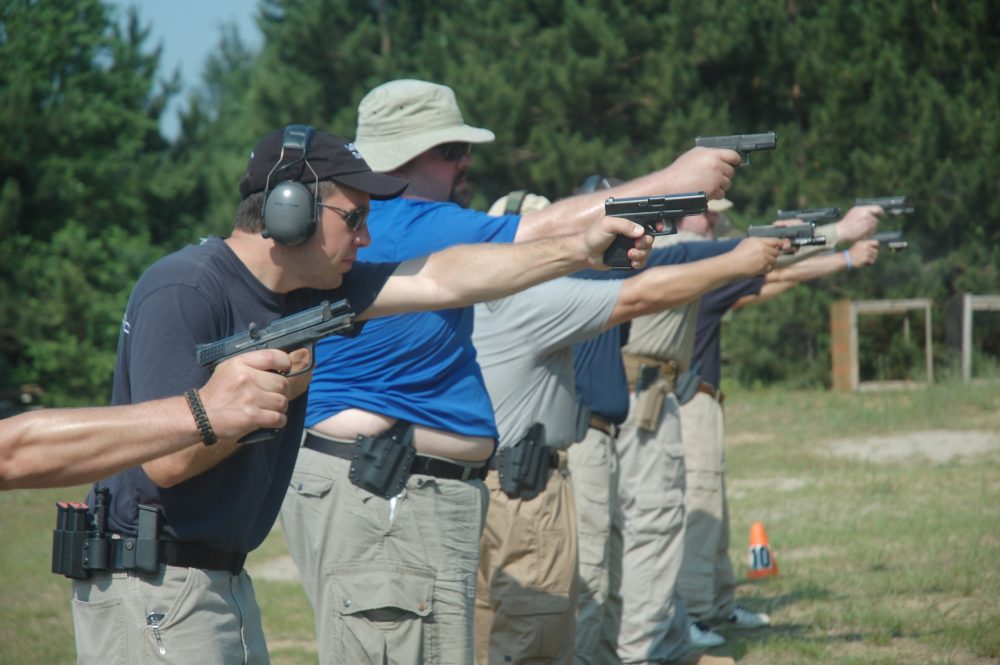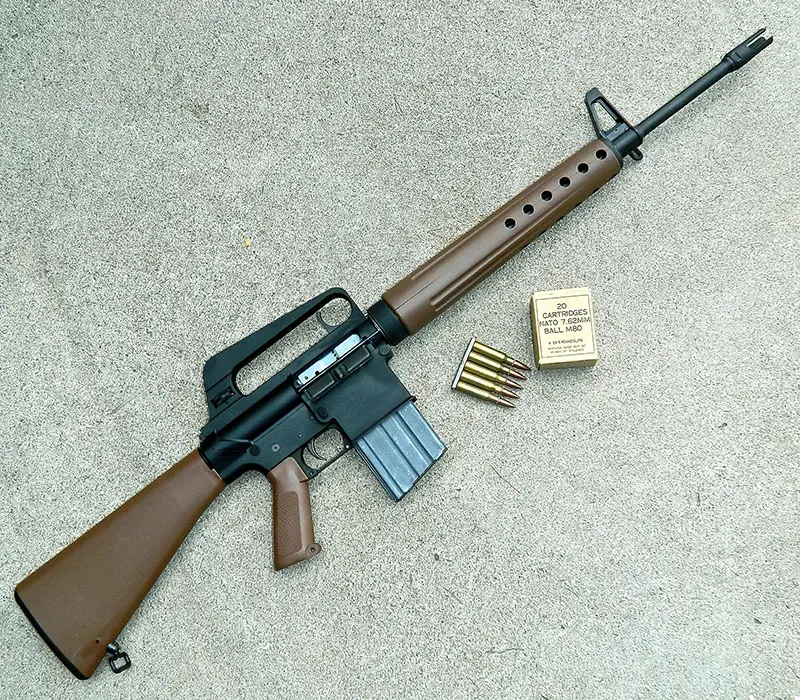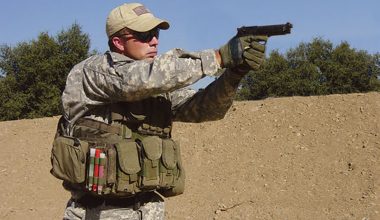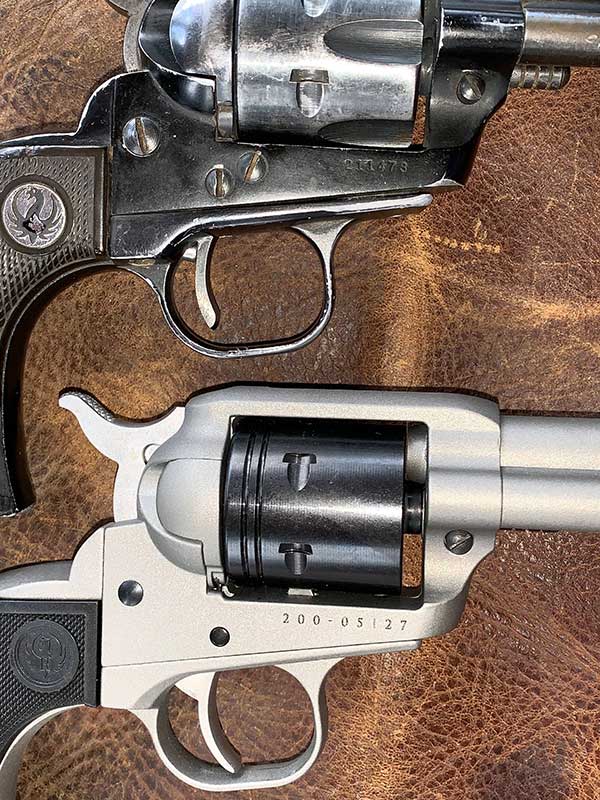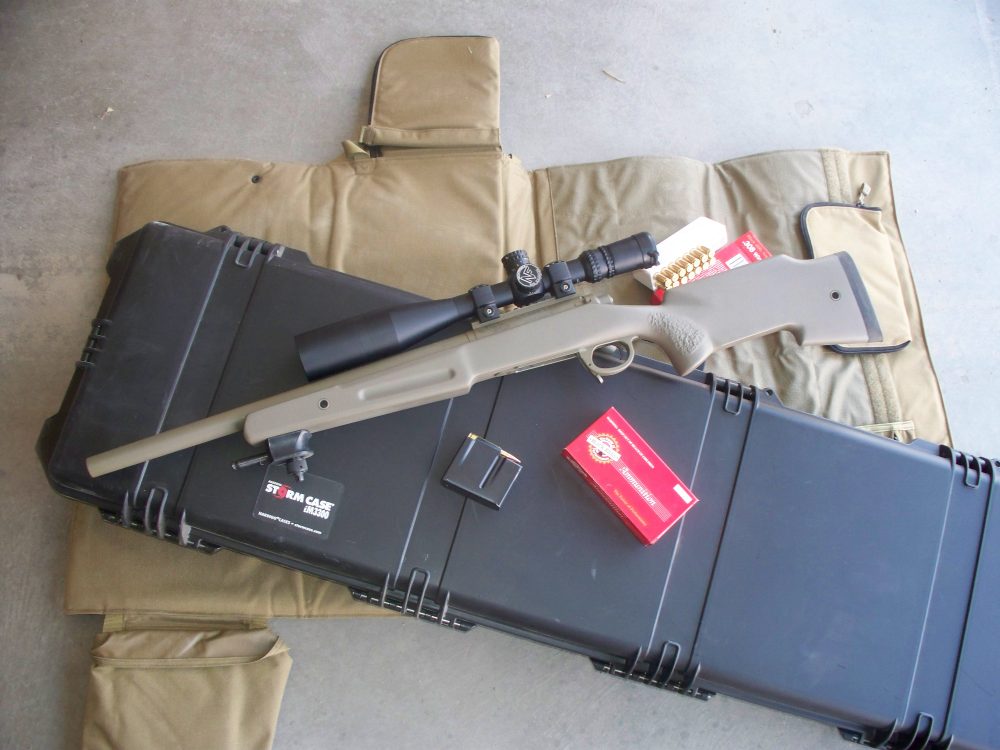Federal agents, cops and private citizens, all functioning together because of a commonality of interest, attended this class. And many false perceptions were destroyed.
Some training companies offer both open and restricted enrollment courses. Is there a difference? At my outfit, EAG Tactical, I get enough questions to warrant a lengthy explanation, so here we go.
Definitions: A restricted enrollment class is a class that is limited to a specific group/groups of people. An open enrollment class is one that any vetted person can register for and attend. Pretty simple, no? Actually, no.
A fact of life is that not everyone should/can attend any particular training class. To prevent prohibited persons from attending, any reputable training entity will vet those who attend their classes. This vetting will be to ensure that the potential student is a citizen of the United States or a Lawful Resident Alien, in order to comply with the International Traffic in Arms Regulation.
The U.S. Department of State regulates the import and export of defense items, and that includes training. This means that if you are a citizen of Canada, Australia, Norway or wherever, you cannot receive training in the U.S., and an American cannot travel to a foreign country nor provide to a foreign citizen in this country certain training.
We see some trainers advertising classes in other countries and accepting foreign nationals as students in the U.S., but without State Department licenses, it is illegal.
A second group of prohibited persons is convicted criminals—for obvious reasons. EAG Tactical requires that all applicants be police, military/USG contractors, or private citizens who have a pistol license from any state. For those who live in a state where a pistol license is not issued/required, such as Utah and Florida, we suggest they get an out-of-state pistol license.
Two Marines, one Sailor, one Cop, and a lot of very competent average earth folks attended this course.
Table of Contents
RESTRICTED ENROLLMENT
Why are some classes restricted enrollment? This is almost universally a requirement of the host agency, primarily police, military and other government agencies or certain private firms. And it is often because the facility does not permit outsiders, whether because of policy, insurance requirements, content of the course, or sensitivity of the subject matter or personnel.
Content is a contentious subject. What should/should not be taught to average earth people? Basic to advanced shooting skills transcend occupation. Certainly the professional community owes a lot to the competitive shooting community in terms of equipment and shooting Tactics, Techniques and Procedures (TTPs).
And while how we shoot at a match may not translate to how we engage in a gunfight, the basics are the same. However, big team tactics, explosive breaching, and some other topics may not be appropriate for those not in the business. Policy issues are pretty much etched in stone—at least in the minds of those who make the rules.
At one time, Sheriff Ken Campbell of the Boone County, Indiana Sheriff’s Office was perhaps the only sheriff in the U.S. who not only permitted civilians on the range, he encouraged them. The Sheriff and the City Council even mandated that the SO provide training for civilians at their range.
And while it doesn’t happen nearly enough to be called a trend, there are now a number of police agencies that accept civilians in classes at their ranges. One of these is the Alliance, Ohio PD which—in addition to having an exceptional training facility—welcomes vetted civilians into that facility with open arms. The St. Johns County, Florida and Casa Grande, Arizona SOs are likewise civilian friendly, as are a number of other venues where I regularly teach.
On the other hand, an open enrollment class is one in which vetted people, regardless of occupation, may participate. Everyone receives the same level of training.
This class at the Boone County, Indiana Sheriff’s Office range included military and law enforcement, but mostly civilians. BCSO is one of a number of PDs/SOs that not only allow but also encourage civilians to train with them.
PROS AND CONS OF RESTRICTED TRAINING
What are the pros and cons of restricted training?
Pros: Restricted training may mean all students are from the same community and will therefore—at least to a certain extent—have a commonality of interest. This commonality increases when all hands are from the same agency/unit. Training will be narrowly focused on the users’ needs and requirements. Unit integrity may be enhanced.
Logistical issues may be reduced. This is especially true if you are conducting training at their facility. Peer input under certain circumstances may reduce performance anxiety.
Cons: Logistical issues may increase. This is especially true when conducting training on a mil facility. Commonality may be a roadblock to learning as you get the, “But we have always done it this way” attitude.
Only in an open enrollment class would you get Caleb Crye, others from Crye Precision, cops, contractors and military together in one group.
PROS AND CONS OF OPEN TRAINING
Pros: People are leaving their comfort zone. They are moving into what may be uncharted territory, which requires them to pay attention rather than coast on through. People from different backgrounds will interact, and the conversations that occur behind the line may be enlightening.
Con: Some students are not comfortable when friends or a support group are close at hand.
The demographics of the training world have always been interesting. Internal training is the most common training. It is conducted by the component/department/agency solely for its members.
There are both advantages and disadvantages of this kind of training.
INTERNAL TRAINING
The apparent advantage is that the command staff picks their instructors and they teach what the command staff wants them to teach. And that advantage is also a gross disadvantage. The command staff are most often managers, not leaders, and arrived at their lofty positions because they were able to study on company time or knew how to play the game.
They may pick instructors not because they are competent or subject-matter experts, but rather because they are a favored child, the result of a quota, or the in-house gun nut—none of which have anything to do with imparting knowledge.
And the institution breeds corporate incest, where no instructor is willing or able to institute changes because, “We have always done it this way.” Teaching can become stale, especially if the instructors do not get to an outside school to learn new TTPs.
There are a great number of trainers available to conduct training at off-site facilities. Many of these instructors have extensive knowledge as well as teaching experience and are not locked into dogma. They teach what works. Others may have only the experience they gleaned from attending someone else’s class. As always, caveat emptor.
Soldiers, cops and industry professionals shoot together in this South Carolina open enrollment class.
I BRING PEOPLE TOGETHER
Open classes are my favorite classes to teach. The diversity of the class means that you will be in close proximity to people you may not often rub shoulders with. For example, many average earth people see cops as jackbooted thugs who cannot shoot for love nor money.
But those cops paying out of pocket for a class are usually very competent as well as approachable. Let’s face it, cops are an insular bunch, and for cause. If there is only one cop at a party, by the end of the night everyone will have talked to the cop about how he was unfairly ticketed for a traffic violation, or what they perceive to be poor police service, or whatever. The result is that pretty soon a cop will only associate with other cops because they share the same working hours, the same attitudes, and can listen to people bitch about things they are well versed in.
Some people look at cops as belonging to one of two major groups—the Barney Fife Model or the SWAT cop—without having an understanding of what a cop actually does. And they will be pleasantly surprised to see cops who are good gun handlers and shooters.
Most cops consider the civilians in class to be unprofessional and incompetent. They may often consider them tinfoil-hat-wearing, late-night-AM-radio-listening wackos. And they may be surprised when they find that a lot of these folks can shoot like a house on fire, have better guns and gear, and may be highly motivated people who share the same values as they do.
Open classes give everyone the opportunity to associate with people with dissimilar backgrounds. You might be at a class with military door kickers, pilots and artillerymen, cops from big cities and small sheriff’s offices, brain surgeons, nurses, lawyers, plumbers, and IT people. Connections you make at class may be invaluable to you.
Open classes draw people from all walks of life and every job title imaginable.
STUDENT RESPONSIBILITIES
I am a strong proponent of the Second Amendment and believe all competent American citizens should be able to possess and carry firearms. By competent I mean not suffering from a mental illness, drug users, or those convicted of (most) felony crimes. This is your right as a citizen.
I also firmly believe that merely owning a firearm does not mean you are proficient with it. Possessing a firearm carries with it significant legal, moral and ethical responsibilities.
At minimum, you need to understand these four safety rules:
- All guns are always loaded.
- Don’t let the muzzle cover anything you are not willing to destroy.
- Finger straight and outside the trigger guard until your sights are on target and you are ready to shoot.
- Be sure of your target. Consider the background.
If you are going to shoot the weapon, you need much more, and if you carry it, you need to be a competent gun handler and have a clear understanding of the laws concerning the use of deadly physical force. Training is necessary if you want to be competent with the weapon.
Training can be expensive and time consuming—but it is also fun. Open enrollment classes give people the opportunity to learn other ways to do things, gain competency, and meet some interesting people.
Finally, get politically engaged. The socialists have been eroding our freedoms and destroying our country from within. The only way we can reverse this is to vote the socialists out of office—and keep them out of office. And we can only do that if we are united in our common cause.
Pat Rogers is a retired Chief Warrant Officer of Marines and a retired NYPD Sergeant. Pat is the owner of E.A.G. Inc., which provides services to governmental organizations and private citizens. He can be reached at [email protected].
